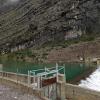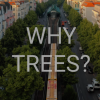News
Displaying Results 51 - 75 of 168
According to the UNECE Smart Sustainable Cities profile for Tbilisi, presented today in the capital of Georgia, the city has made important efforts in implementing the 2030 Agenda for Sustainable Development, capitalizing on the growth opportunities generated by the Association Agreement between…
Finland and the Republic of Namibia, both countries which are strong advocates for transboundary water cooperation in their respective regions and globally, have just embarked on a two-year pilot Twinning Initiative to exchange experiences, build capacity and strengthen bilateral cooperation on…
In the world grappling with the triple crisis, encompassing the COVID-19 pandemic, ongoing regional conflicts, and climate change, disruptions of global supply chains are becoming more evident, resulting in the global trade slowdown. More specifically, these challenges have led to a significant…
Guaranteeing safe access to drinking water and sanitation remains a challenge in the pan-European region, with 16 million people still lacking access to basic drinking water services and over 29 million people not having access to basic sanitation, including hundreds of thousands who have to…
20 May marks the World Metrology Day, celebrating the international system of units, which coincides with the anniversary of the signing of the Metre Convention in 1875. This treaty created the International Bureau of Weights and Measures (BIPM) which coordinate international metrology and the…
Representatives from Kazakhstan, Kyrgyzstan, Tajikistan, and Uzbekistan met at the United Nations Economic Commission for Europe (UNECE) to discuss ways to unlock the resource potential and promote a sustainable future in Central Asia. The meeting was part of the UNECE Resource Management Week 2023…
How can regional and international cooperation be fostered in a region that faces unprecedented water scarcity? How can the benefits of this vital resource be shared to increase resilience to climate change?
The Third Baghdad International Water Conference titled "Water Scarcity, the Mesopotamian…
Young professionals from industry, academia, and civil society came together to discuss and explore solutions for sustainable resource management at the UNECE Resource Management Week 2023. Hosted by the UNECE Resource Management Young Member Group (RMYMG), the highly interactive session provided a…
Uzbekistan is one of the world's largest producers of gold and uranium. In the last 40 years, Uzbekistan has built a strong mining industry, which is expected to grow in the years to come, given that only 20 % of the country’s territory has yet been explored. The expected rise in the number and…
Experts from Albania and Montenegro met in Shkoder (Albania) on 25 April 2023 to progress with the exchange of information on the shared Cijevna/Cem River. This was the second meeting of the joint technical group on monitoring and assessment established upon recommendation of the Implementation…
In a move towards sustainable resource management, several countries have presented case studies of how the United Nations Framework Classification for Resources (UNFC) can scale-up harmonized resource management. UNFC provides a common language and standards for the classification of all energy…
Artificial intelligence (AI) is becoming more prominent in the world that surrounds us even if it has existed for a good deal of time. The Internet search engines have been using AI to identify articles that correspond with our search, enabling product advertisers to correlate their marketing with…
Prevention of and preparedness for industrial accidents require special attention in Tajikistan, a country with a strong mining industry. The mountainous terrain of mining sites makes them highly susceptible to earthquakes, mudflows and floods, which can provoke Natech events (natural hazards…
Picture your favorite tree-lined street or childhood park. Now picture it without trees. Would it be the same?
On 30 March, at the Regional Forum for Sustainable Development, UNECE debuted the short film “Why Trees?”, which invites us to reflect on our human connection with the trees around us.…
Adopted in 1963, the UNECE Standard S-1 concerning the certification and commercial quality control of seed potatoes provides a framework for the international trade of seed potatoes. It is currently the only international standard that ensures that seed potatoes meet specific and harmonized…
Industrial safety and the prevention of accidental water pollution were high on Kazakhstan’s agenda this week, with the Second Meeting of the Inter-institutional Working Group on Tailings Safety and the Prevention of Accidental Water Pollution (IIWG).
The meeting brought together more than 60…
Joint efforts to harmonize data collection, strengthen monitoring and data exchange on water quality, develop early warning systems on water pollution at transboundary waters and improve collection and sharing of data on transboundary aquifers are needed for effective regional cooperation in…
While Uzbekistan has improved its environmental performance in line with the Sustainable Development Goals (SDGs) related to water and sanitation (SDG 6) and forests and tree cover loss (SDG targets 15.1, 15.2, 15.3), significant challenges remain related to air quality (SDG 11.6), water resources…
Standards touch nearly every aspect of our daily life through all the products that we use and consume each day (for example, mobile phones, vehicles, cleaning products, personal protection equipment, toys, and others). When they are produced or introduced on the market, products are checked for…
According to the latest data available reported by the Organization for Economic Co-operation and Development (OECD) in 2019, imports of fake products into the European Union (EU) were up to around 6.8% of all imports. The same year worldwide, counterfeit and pirated merchandise amounted to USD 509…
It is critical that construction industry’s general contractors, architects and governments find ways to innovate and incorporate minimum efficient standards and innovations, such as architectural upcycling and recycling, through proper and updated legislative frameworks and rules as well as…
In the past years, Central Asia has been facing major climate-change related challenges – drought, floods, desertification, sandstorms, extreme cold and heat spells – and many more. Not only have these affected rural areas, but cities have been suffering, too. Accentuated by increased traffic…
The transition from linear to circular economies requires fundamental rethinking of trade policies and regulations. “Harmonized System” codes (HS codes) are a key pillar of the tariff infrastructure for international trade. These HS codes were designed at a time when circular economy considerations…
Technologies can enhance commerce if clear international standards are in place to ensure that their use is harmonized between trading partners, and if there is regulatory coherence among countries.
Ways in which digital and green transformations can improve quality infrastructure for trade in…
Standards are in everything that surround us. Just the mobile phone in your pocket uses hundreds of standards, from the cellular network and the cable connectivity to physical elements such as the processing chips and the LED screen, not to mention security testing and the process design. We rely…


























